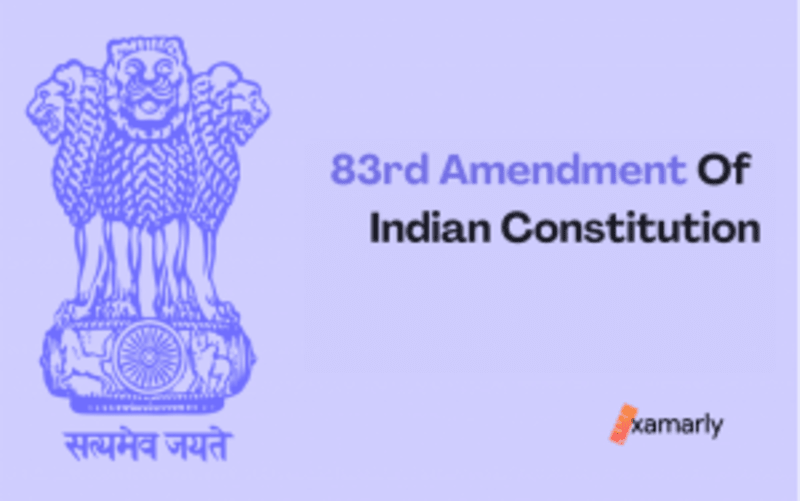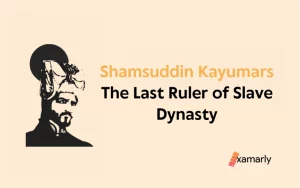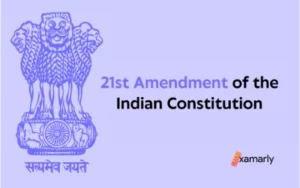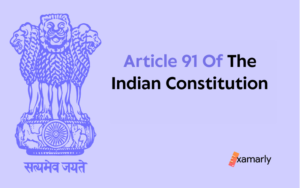The 83rd Amendment to the Indian Constitution does not create any reservations for Scheduled Caste or Scheduled Tribe persons in the Panchayat for the state of Arunachal Pradesh.
One hundred per cent of the state’s population is comprised of tribal members, making this state a tribal state. As a result, there is no longer a need for the state to establish reserves for SCs and STs.
Read this article to know more about the 83rd Amendment of the Indian Constitution. This article will help you in your UPSC Preparation.
What is the Indian Constitution’s 83rd Amendment?
The 83rd amendment to the Indian constitution was approved in the year 2000. As a result of this modification, Article 243M of the Indian Constitution was altered to remove the state of Arunachal Pradesh, which is exclusively made up of members of tribal societies, from the need that reservation of seats is established in Panchayats for members of SC or ST.
The state’s former name, Arunachal Pradesh, was renamed to Arunachal Pradesh Tribal Development Council under the new law.
Key Points
- On December 16, 1999, Sunder Lal Patwa put up this legislation.
- This piece of legislation is referred to by its formal title, which is the Constitution (Eighty-third Amendment) Act of 2000.
- The Assembly of the Indian Republic approved Amendment No. 83 to the Indian Constitution in its 51st year of existence.
- This amendment was enacted on 8th September 2000.
Objects and Reasons
April 24 of the year 1993 witnessed the revision of the Indian constitution by the 73rd Amendment Act of 1992.
Each state was required to make changes to its own legislation within a year of the Act’s passage date to bring it into line with the new Constitutional requirements. Time is running out to finish this exercise by April 23, 1994.
The Scheduled Castes and Scheduled Tribes are given representation in each Panchayat through reservations under Article 243D.
The population of the state of Arunachal Pradesh consists of native tribal folks. The state is devoid of Scheduled Castes.
There are no Scheduled Caste quotas in the State Legislative Assembly, and there are also no relevant laws requiring the creation of such quotas.
Scheduled Castes are not given any special treatment in the hiring process by the state government.
The Bengal Eastern Frontier Regulation of 1873 and the Chin Hill Regulations of 1896 created numerous shields and securioty for the indigenous tribal people of Arunachal Pradesh.
These regulations forbid the entry of outsiders into the tribal territory without an “Inner Line Permit.” The democratic process is solely open to the native tribal people.
The Arunachal Pradesh tribal tribe has never practised a caste system and has always valued gender equality.
Article 243D of the Indian Constitution talks about giving Scheduled Castes seats in Panchayats. It was proposed to add a new clause (3A) to article 243M to exempt the state of Arunachal Pradesh from these rules.
The reason for this is that Arunachal Pradesh is the only Indian state that does not have a caste system, and hence no members of the Scheduled Castes live there.
This would provide a constitutional and legal framework for Panchayat Raj Entities in Arunachal Pradesh, bringing them into line with the underlying socio-political essence of the state. The Bill intends to achieve the aforementioned goal.
You Might Also Like
Constitutional Amendment to the Article 243M
The third paragraph (3A) of Article 243M was added by the 83rd Amendment. According to the revised text, the State of Arunachal Pradesh is exempt from the provisions of article 243D (which addresses the reservation of seats for Scheduled Castes).
Conclusion
Seeing as how Arunachal Pradesh is exclusively occupied by indigenous tribal people, the administration saw no need for reservations and amended article 243M to include a new section (3A).
FAQs
Q: What is the purpose of reservations for STs and SCs?
A: Reservations for STs and SCs are a form of affirmative action aimed at promoting equal opportunities for historically disadvantaged communities in India. By reserving a certain percentage of seats in educational institutions, government jobs, and political representation, the government aims to give these communities a level playing field to help overcome past discrimination and social, economic, and educational disadvantage.
Q: What is the percentage of reservations for STs and SCs?
A: The percentage of reservations for STs and SCs varies from state to state, but the national average is around 22% for SCs and 8% for STs. This proportion, however, is subject to change based on the number of qualified applicants in a given region and the available positions.
Q: Who is eligible for reservations for STs and SCs?
A: To be eligible for reservations for STs and SCs, a person must belong to one of the recognized tribes or castes and satisfy the criteria laid down by the government. The criteria include income, education, and social status.
Q: Can a person from an ST or SC community avail reservations in both education and employment?
A: Yes, a person from an ST or SC community can avail of reservations in both education and employment, provided they meet the eligibility criteria set by the government.
Q: What is the difference between OBC and ST/SC reservations?
A: OBC (Other Backward Classes) reservations are meant for communities that are socially and economically backward but not as marginalized as STs and SCs. STs and SCs are considered to be among the most disadvantaged communities in India, and reservations for these communities are more extensive compared to OBC reservations.






